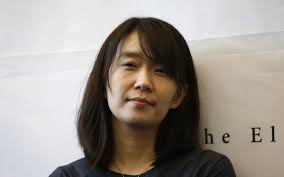January by Sara Gallardo, the second book in the February Book Box, is a slim novel, barely more than a 100 pages. Yet, I stayed up all of one night reading it. I read sentences again and again, then chapters. Sometimes I had to close the book and my eyes to immerse myself in the story. About halfway through, I shut the book and decided to sleep, but could not. I could not leave Nefer.
A Brief Outline of January by Sara Gallardo
Nefer is the sixteen-year-old daughter of estancia farmers in rural Argentina. Her family is poor. She is raped at her elder sister’s wedding party by a drunk railroad worker. By the time the story begins, Nefer is already pregnant, already doomed. She tries to keep her pregnancy a secret from her devoted Catholic family and community, a plan that was fated to fail since she has no access to abortion, no means of seeing her rapist punished, no chance of gaining sympathy from those around her.
If you want to know more about Sara Gallardo, we’ve got a post about her here.
The Argentine Pampas
In the Argentine Pampas where the story is set, January is the hottest month. Everyone around Nefer is talking about the harvest. She is preoccupied with another thought: by harvest time, her belly will have grown, and everyone will know. Her silence swells like the oppressive heat. When Gallardo writes, “Because there is no going back, time keeps passing and everything grows, and after growth comes death. But you can never go back,” she is talking about both the harvest and Nefer’s pregnancy.

The Southern Lapwing
However, Nature is not Nefer’s friend. Often, it is a silent observer, making Nefer’s isolation even more evident: “What’s a young woman to do? All alone in the country, a countryside so vast and green, nothing but horizon, with trains going off to cities and coming back from who knows where.” At times, Nature seems deliberately cruel to Nefer. Lapwings appear frequently in the text, always as ominous creatures with their shrill cries. When she visits a “witch doctor” to try to get an abortion, a deceit of lapwings gather in large numbers, as if to loudly mock her secret.
The landscape is the main expansive element of the story. It is dramatic; it stretches over everything, permeating Nefer’s consciousness and dictating the lives of everyone around her.
Gallardo’s Writing and Her Portrayal of Nefer
Gallardo’s writing is in sharp contrast to the landscape. The chapters of January are more like vignettes, revealing for a few minutes Nefer’s state of mind and the progress of her pregnancy. Gallardo writes economically, almost sparsely. Sometimes, it feels like you are stuck in a nightmare. The language is dreamy, but you know you are heading for doom.
The story is told from Nefer’s perspective. “Gallardo, who lived a life of great choice and mobility, writes with a deep sense of kinship about the social factors—class, race, gender, religion, and rurality—that converge on poor, pregnant Nefer to take her liberty away,” Lily Meyer writes for The New York Review of Books.
In Nefer, Sara Gallardo creates a convincing portrait of a teenage girl in her particular circumstances. Her religion and gender define her life, but so does her class. If she were rich, her violation would be more offensive, for her market value is more significant. She may have had access to abortion.
Nefer is also a reminder of the dramas of adolescence. Her crush on Negro Ramos has all the passion of a young mind inexperienced in sex. She dreams that he is the father of her child, and he will marry her. She hates his love interest, Delia, and devises violent outcomes for Delia in her mind with delight. The intensity and innocence of her daydreams are a reprieve from the serious events in her life. You want to scream, as you read, She is a child. There is only silence, however.
Behind the Silences in January
Nefer’s isolation is evident. The pregnancy has ruptured, irrevocably, life as she knew it. She cannot talk to anyone, not when she cannot admit to herself that she is pregnant. It is through everything that is left unsaid, all the words that have not been used to label the situation, that the magnitude of Nefer’s pain hits the reader. The silences and sparseness of language increase the feeling of doom that is ever-present in the novel. Nobody around Nefer can hear or see her plight: not her family, not priests, not even God.
She never uses the word “rape”…even if she did, would it have made a difference? The word “is derived from the Latin rapere, meaning ‘to steal, seize, or carry away.’ Forcible seizure and rape were accepted methods of claiming a wife in early history – and, in some cultures, this still occurs. Owning property and gaining wealth were considered marks of manhood.” It doesn’t matter if she was raped or if she had consensual sex: she is now “damaged” and has lost her market value. This is her fault.
Our current understanding of words like “rape”, “consent”, “assault”, “abortion”, “birth control”, “relationships with a minor” are alien in Nefer’s world. Yet, Gallardo manages to depict an entire universe in this short book, exploring weighty themes like religion, bodily autonomy, class, gender in what she chooses to leave unspoken as much as in what she has written.
The Unsettling Relevance of January by Sara Gallardo Today
January feels uncomfortably familiar, strangely contemporary. A majority of rapes go unreported. It is difficult to understate the difficulties involved in getting a rapist convicted. Many people in positions of extreme power and wealth have been accused of sexual assault and rape, including a former President now running as a candidate for the presidential election.
Birth control remains woefully inadequate and inaccessible. Abortion is now one of the most contested issues in the country. With many states adopting laws that ban abortions altogether, with little or no caveats for children, rape victims, or those dealing with dangerous pregnancies.
While #metoo felt like a reckoning, even letting women and sexual minorities hope with the arrest of a high-profile person like Harvey Weinstein, in 2024, most of the accused have thriving careers, the accusation a mere speed bump on their paths.
When Sara Gallardo wrote January in 1952, it was the first book in Argentine literature to explore rape from the survivor’s perspective and to depict the dangers of pregnancy. Now, it is 2024. How much has things changed, really?
Thoughts on January by Sara Gallardo, by a Reader Born into a Catholic Family
In the beginning of this post, I said it took me an entire night to finish the book. The pleasure of rereading Gallardo was only a part of the reason, however. In many ways, Nefer’s story felt current and immediate, her thoughts in the story almost identical to what many of the women I know and I have felt ourselves in different points in our lives. The story particularly resonated with me because, like Nefer, I too grew up Catholic.
I do not mean to correlate my life with Nefer’s: I was not raped and impregnated at sixteen. Neither did I grow up poor. As a woman who was educated in progressive institutions in the Global South in the late twentieth and early twenty-first centuries, and now lives in wealthy California in the most powerful of countries, I have access to the vocabulary and significance of current, intersectional feminism.
But how could I not relate to Nefer, when both of us grew immersed in the Catholic way of life?
I was constantly told as a child that Jesus was my husband until I was married. “Jesus loves women,” my mother used to tell my sisters and I. The evidence was in the New Testament: women were his most ardent believers. He was born of a woman but not of a man. He hung out with Mary and Martha. Then there is Mary Magdalene, of course. When his male followers abandoned him, the women watched his crucifixion and took care of his body afterwards. When he was resurrected, he first appeared to women. He was the perfect man, according to the adults around us. I read the Bible three times and agreed.

Jesus and the Samaritan woman

Jesus and Veronica

The body of Jesus, taken care by his female followers

Jesus and Mary Magdalene
In my daily life, however, Jesus seemed far away. Nearer were the priests in white reminding us every Sunday to cover our hair lest we tempt the men. The children sat on the floor at the friend of the church while priests who had taken vows of chastity preached on the role of the woman in keeping the family together. The Church is the bride, Jesus the husband. Like Jesus takes care of the Church, so will your husband take care of you. As the Church serves her beloved, so must you. We knew all of this before puberty hit us.
I also knew, before the age of ten, that if I ever got pregnant, even if I was raped, I would keep the baby. My mother told me this, adding, “two wrongs don’t make a right.” She would read my sisters and I stories of girls being assaulted, of being duped by their boyfriends and gang-raped by his friends, of being abandoned by their lovers once their bellies grew. It was our responsibility to ensure we were never raped; the men had no self-control. So we covered our hair in church, wore long and loose clothes that hid growing bumps and curves, and limited our interactions with all members of the opposite sex, even the boys in our classes.
My mother would tell us the story of St Maria Goretti. She was a child when Alessandro tries to rape her. She vehemently fights him off, saying it is a sin. He chokes her to death. Why was she a saint? Because she chose to die rather than being raped.
We knew, growing up, to not tell the adults when middle-aged men groped us or followed us home. The only time I did tell, I was told y my entire extended family I needed to dress more modestly and was forbidden from going out on my own. When my parents discovered I had a boyfriend in high school, no amount of verbal or physical attacks could dissipate my father’s fury. My mother said I was worse than an adulterer; I had cheated on Jesus. They sent me to a “divine” retreat. I received counselling from priests and elders my family trusted to talk about their “shame”.
Like Nefer, I did not know back then that I had not done something wrong. I did not have the right words to describe what happened to me. I was crushed by my loneliness, by my guilt.
As a woman in her thirties, I still struggle with my childhood, with what love and family are supposed to mean. I am far away from being like Nefer, but a lot of her thoughts, confusion, and guilt in January were mine too, are mine too.










